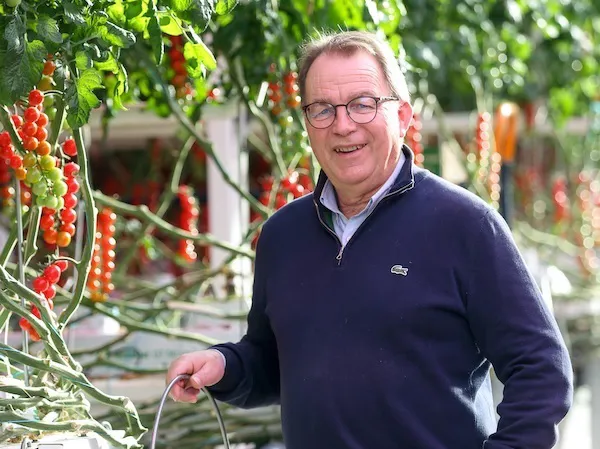Le Jardin de Rabelais, a French greenhouse managed by Pascal Delahaye, produces tasty tomatoes, including cherry tomatoes on the vine. Working all year round, the producer is faced with a growing energy challenge that has been affecting the whole agricultural sector. "Energy is a big problem. Today, only very good producers are able to grow in these conditions with energy prices having reached such a level."
 Pascal Delahaye
Pascal Delahaye
Increase in energy costs…
The situation is even more marked when the crops grow in greenhouses during the entire year. "We have eight greenhouses on about 20 hectares. We have increased our surface area, and it allows us to work in a more extensive way and rotate the crops. But we still need energy and gas for lighting and heating in the greenhouses in order to produce all year round. Regarding gas, we achieve moderate heating costs thanks to a cogeneration system and very fine management. But when it comes to lighting, we are hit really hard by these increases, which have tripled since 2021. We have therefore optimized our lighting hours and adjusted our schedules to reduce the costs, but in the end, less lighting means that we produce less."
Difficult to pass on to the product's selling price
The situation is very complicated because these costs cannot be passed on to the product's selling price. "We have slightly increased the price of our products in 2022, but this increase obviously does not cover the energy costs. It is simply impossible to increase the price of tomatoes beyond a certain threshold because they will not sell."
A drop in purchasing power with little impact on premium products
Production is normal for this time of year. "For the moment, we have nothing to complain about. The market is normal, which is in line with our expectations for the end of March. We are running at full capacity and have no stocks. And there is no decrease in terms of consumption. Sales have remained stable compared to previous years for our flagship product, the cherry tomato. The drop in purchasing power has little impact on the sales of premium products, although tension can, of course, be felt on the market."
Le Jardin de Rabelais mostly sells its products in France, under the brand name 'Le Jardin de Rabelais,' 'Les petites chéries,' or under private labels via two distribution channels, wholesalers and supermarkets. In parallel, the company also exports its products to Germany, Luxembourg, and occasionally to Great Britain.
For more information: Pascal DelahayeLe Jardin de Rabelais
[email protected]










